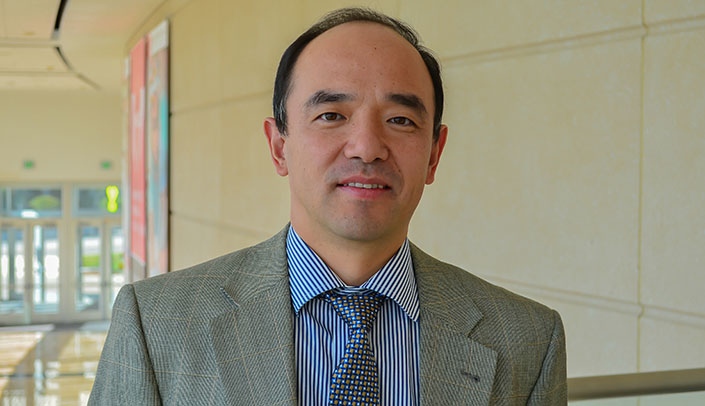Vaccine hesitancy remains a challenge in the state of Nebraska, with public health directors from agencies across the state reporting reluctance among their residents.
“A lot of people are hesitant because it is so new, while others have been seeing in statistics that the first shot is 80 percent effective, so they think that is good enough and don’t come back for their second shot,” said Brandy Bird, nurse director with the Red Willow Health Department in McCook, Neb.
Or as Meghan Trevino, coordinated services director with the West Central Health Department in North Platte, Nebraska, said, “People just do not want to vaccinate overall.”
A survey jointly conducted earlier this year by the Center for Reducing Health Disparities in the College of Public Health at UNMC and Nebraska Department of Health and Human Services (DHHS) revealed that among Nebraska adults who have not been vaccinated, 23 percent are reluctant to take the vaccine.
According to data from the Centers for Disease Control and Prevention, as of June 24, 2021, only 47.5 percent of Nebraskans were fully vaccinated.
The public will get a chance to hear about how the vaccination process is proceeding in the state when Nebraska DHHS CEO Dannette Smith and Chief Medical Officer Gary Anthone, MD, join UNMC Chancellor Jeffrey P. Gold, MD, on June 28 at 3 p.m. on the Nebraska Forward program on News Channel Nebraska.
The state also has been aggressive in outreach through several online town halls, media interviews and a public service announcement campaign airing on radio stations across the state.
“Vaccination in the state is the most critical component to control the COVID-19 pandemic,” said Ming Qu, MD, PhD, epidemiologist with Nebraska DHHS and co-principal investigator of the survey.
The survey of more than 1,200 Nebraskans was conducted under the direction of Dejun Su, PhD, associate professor in the department of health promotion in the UNMC College of Public Health and principal investigator.
Safety concerns, side effects and lack of trust were the top reasons given for not wanting to take the vaccine, Dr. Su said.
The survey also showed that there is more vaccine hesitancy in rural areas as compared to urban; and there is more vaccine hesitancy among minority groups, most notably among Hispanics, he said.
The results of the survey, Dr. Qu said, already are helping to inform targeted communication strategies public health officials will use to encourage greater vaccine uptake.
“We have a long relationship with the UNMC College of Public Health and have worked together over the years to address many issues,” Dr. Qu said. “The information gathered by this survey is helping us to understand public perceptions and quickly address those concerns to make an impact on vaccine hesitancy across the state.”
“It paints a vivid picture of vaccine hesitancy in the state that we can then share with our federal partners and pivot when we need to address new concerns,” Smith said.
The survey, which was part of the study “Community Assessment to Recommend an Optimal COVID-19 Vaccination Plan in Nebraska,” funded by the Holland Foundation and Nebraska DHHS, was mostly conducted between Feb. 1 and April 15. It was done in partnership with public health districts and other stakeholders via the online platform REDCap.
“The study findings greatly informed our understanding of vaccine hesitancy across the state and have helped to facilitate appropriate strategies tailored and targeted interventions to address documented barriers in receiving COVID-19 vaccinations in underserved communities and to promote health equity,” Dr. Anthone said.
